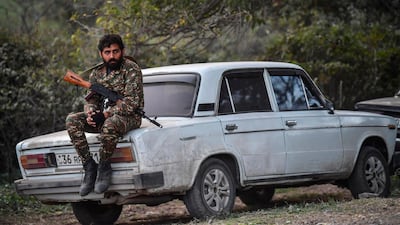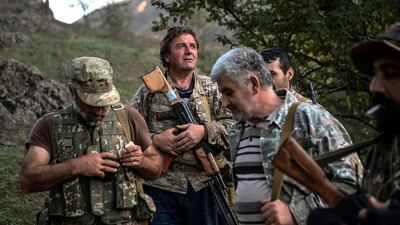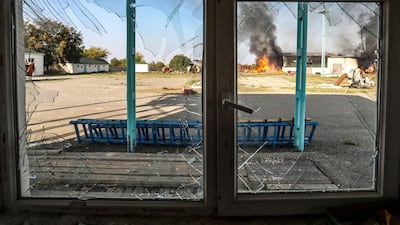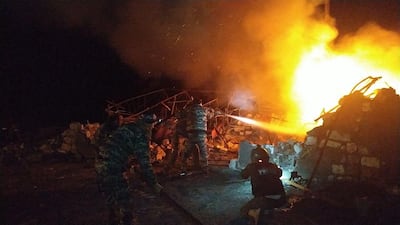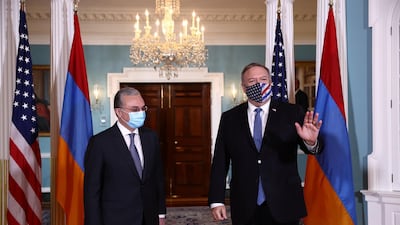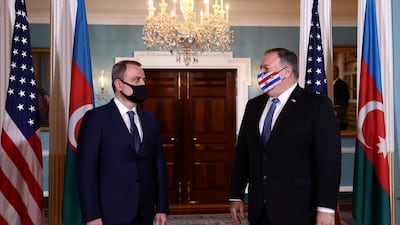Armenia and Azerbaijan on Monday accused each other of again violating a new ceasefire that aimed to halt the fighting over the separatist region of Nagorno-Karabakh that has killed hundreds, and possibly thousands, in just four weeks.
The truce took effect on Monday morning and was agreed upon on Sunday after talks facilitated by the US. It was a third attempt to establish a lasting cease-fire in the flare-up of a decades-old conflict. Two previous Russia-brokered ceasefires, including one last weekend, frayed immediately after taking force, with each side blaming the other for breaches.
The new cease-fire was also challenged quickly by accusations from both sides. Azerbaijani Defence Ministry alleged that Armenian forces fired at Azerbaijani settlements and the positions of the Azerbaijani army “along the entire front, as well as on the Armenia-Azerbaijan state border” using various small arms, mortars and howitzers.
Armenian military officials rejected the accusations and in turn accused Azerbaijani forces of shelling the north-east area of Nagorno-Karabakh and other areas.
Nagorno-Karabakh lies within Azerbaijan but has been under the control of ethnic Armenian forces backed by Armenia since a war there ended in 1994. The latest fighting that began September 27 has involved heavy artillery, rockets and drones, killing hundreds in the largest escalation of hostilities over the separatist region in more than a quarter-century.
According to Nagorno-Karabakh officials, 974 of their troops and 37 civilians have been killed in the clashes so far. Azerbaijani authorities haven’t disclosed their military losses, but say the fighting has killed 65 civilians and wounded 300.
Russian President Vladimir Putin said last week that according to Moscow’s information, the death toll from the fighting was nearing 5,000, significantly higher than what both sides report.
The new cease-fire deal brokered by the US came out of “intensive negotiations” Washington facilitated over the weekend among the foreign ministers of Armenia and Azerbaijan and co-chairs of the Minsk Group, set up by the Organisation for Security and Cooperation in Europe in the 1990s to mediate the conflict.
